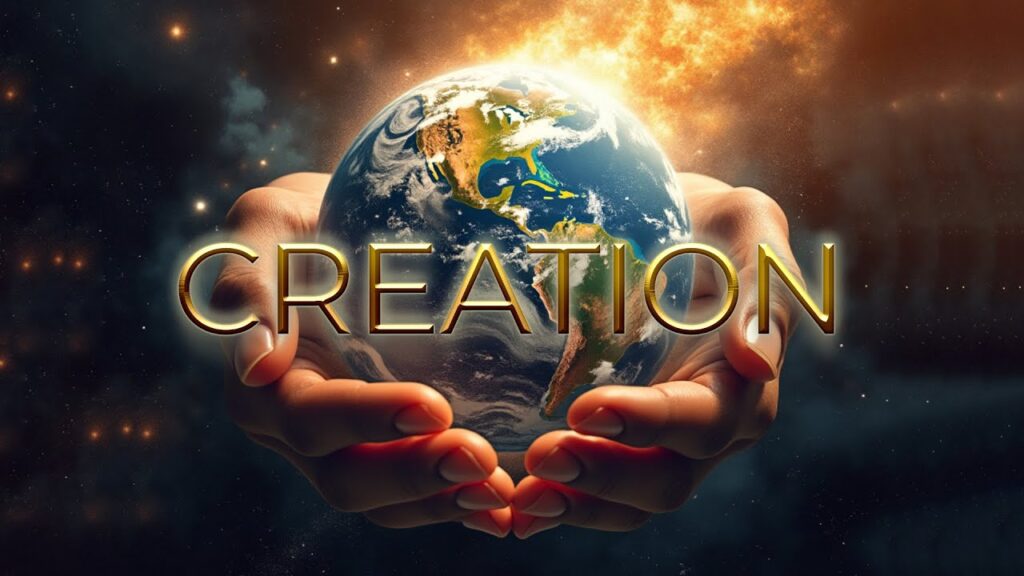Greetings, Christians and non-Christians alike, wherever you may be. Whether you’ve stumbled upon this blog by chance or you’re here seeking deeper insights, welcome. My name is Alexander, and today, I’d like to take you on a journey into the fascinating world of the Book of Enoch. Trust me, you’ll find this intriguing.
Now, the Book of Enoch is often regarded as one of those texts that didn’t make it into the Bible, and that alone makes it worth exploring. It’s a small book, consisting of five sections, but it holds immense spiritual and historical value. Some view it as non-canonical, questioning why it was left out of the Bible despite its strong focus on divine matters. Why were these books removed? Well, there’s a theory: many of these texts were seen as too powerful for the common person to understand, and perhaps, at the time, the church feared their influence.
Watch the full video here:
But guess what? Today, this fascinating book is at our fingertips. You can download it for free, and I’ll drop a link in the description for you to explore it for yourself. But before you dive in, let’s take a look at what this ancient text is about.
The Book of Enoch: An Ancient Jewish Text
The Book of Enoch is an ancient Jewish work that has had a significant influence on religious and mystical traditions, despite not being included in most Christian Bibles — except for the Ethiopian Orthodox Church, which still includes it in their canon. This text is attributed to Enoch, the great-grandfather of Noah, which places it well before the flood. Its influence is undeniable, and I think you’ll understand why once you see what it contains.
Enoch’s Ascension to Heaven
The first part of the Book of Enoch, often referred to as The Book of the Watchers (Chapters 1–36), introduces us to Enoch’s ascension into heaven. Enoch is taken up by angels to witness the divine secrets of the universe. This raises some interesting questions: why did God choose to elevate a human to witness such mysteries? This idea, although biblical, also aligns with concepts found in modern spiritual literature. For example, Dolores Cannon’s book, Between Death and Life, delves into similar realms, exploring how people under hypnosis can access past lives and even communicate with higher realms. Enoch’s experience mirrors that — he is shown the cosmic tapestry, the workings of karma, and even glimpses of heavenly structures, like the divine libraries and celestial realms.
The Watchers: Angels Who Lust After Human Women
Next, we encounter the Watchers — angels who descend to Earth and, as the text tells us, lust after human women. They mate with them, producing giants known as the Nephilim. Interesting note: the human female sexuality is so strong, not even angels could withstand. That’s kind of a brag for women there, innit? The Book of Enoch paints a picture of celestial beings succumbing to temptation, leading to the birth of giants — beings who corrupt the world.
What’s truly fascinating here is how these events introduce sin into the world. The Watchers impart forbidden knowledge to humanity — everything from warfare and magic to even cosmetics. Yes, cosmetics are seen as forbidden, which is curious in itself. But more than just forbidden knowledge, these angels introduce a new level of corruption to the Earth, one that seems to revolve around power, control, and greed.
Giants and the Flood: The Divine Judgment
As the Nephilim grow in size and violence, they consume everything that humanity produces, spreading destruction. Eventually, the cries of humanity reach heaven, prompting divine intervention. The Watchers plead for forgiveness, but their request is denied by God. This is an intriguing point — often, we hear that if we repent, we’ll be forgiven, but here, the Watchers are refused clemency. They are bound and cast into darkness for seventy generations, awaiting judgment.
And then, the flood comes. God instructs Enoch to inform his son, Methuselah, that the Earth will be cleansed of this corruption. The giants and the Watchers will be destroyed, and only Noah — a righteous man — will survive. Noah and his family are entrusted with the task of repopulating the Earth and ensuring the survival of righteousness.
Why Was the Book of Enoch Left Out of the Bible?
Now, why was this book excluded from the Bible? Perhaps it was because it provides too much context to the story of the flood. It explains why the flood had to occur in the first place, describing the destructive influence of the Watchers and their offspring. The giants and their sinful ways needed to be wiped out, but there’s also a theological implication: God had to remove the celestial interference from Earth and restore order. This is a bit of pre-information that some may argue contradicts or complicates the traditional narrative.
Interestingly, the Book of Enoch also hints at the idea that angels may have been too lax in their dealings with humans. The Watchers’ actions are seen as a breakdown in the divine order, and the flood serves as a means of purging the Earth from their influence.
The Legacy of the Nephilim and the Watchers
The Book of Enoch delves deeper into the lives of the Nephilim and the Watchers, showing how their sinful influence led to a world rife with violence and corruption. The Nephilim weren’t just giants in size, but in their bloodthirsty and power-hungry nature, which wreaked havoc on the world. Their very existence posed a threat to the Earth’s balance, which is why they had to be removed.
However, even after their destruction, the consequences of their actions linger. The legacy of the Nephilim — violence, greed, and power struggles — remains a part of human history, and this is one of the reasons why the story of the flood is so important. It’s not just a story of divine retribution, but a cleansing, a resetting of humanity’s moral compass.
Final Thoughts
The Book of Enoch is more than just an ancient text — it’s a story that explores the very nature of sin, temptation, and divine intervention. It offers a glimpse into a world that exists beyond the physical, where angels interact with humans in ways that both elevate and corrupt. It challenges our understanding of the flood and provides a framework for understanding the consequences of our actions.
So, why was this book left out of the Bible? Perhaps it was because it offered too much insight, too much understanding of the cosmic order and the divine workings of the universe. Today, however, it’s available for us to explore, and it provides us with a deeper, more esoteric understanding of the world and the forces at play within it.
Feel free to check out the Book of Enoch for yourself and dive deeper into this fascinating and mysterious text.


